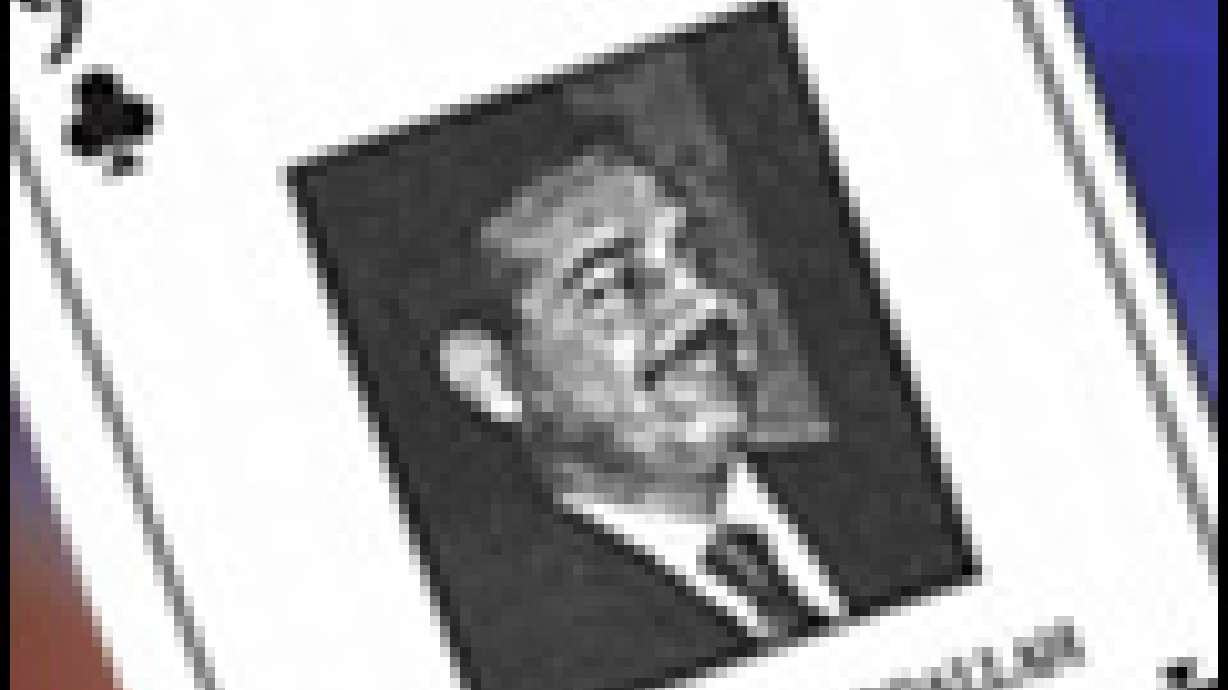Estimated read time: 4-5 minutes
This archived news story is available only for your personal, non-commercial use. Information in the story may be outdated or superseded by additional information. Reading or replaying the story in its archived form does not constitute a republication of the story.
BAGHDAD, Iraq (AP) -- Saddam Hussein's son-in-law and one of the toppled Iraqi leader's bodyguards surrendered to an Iraqi opposition group after returning from Syria, where they had gone into hiding, the group said Sunday.
Separately, the U.S. military said troops captured a top science official from Saddam's regime: the minister of higher education and scientific research.
The son-in-law, Jamal Mustafa Abdallah Sultan al-Tikriti, and the bodyguard returned from neighboring Syria to turn themselves in to the Iraqi National Congress in Baghdad, a congress spokesman in London said. The men could have information on the whereabouts of Saddam, the spokesman said.
Though it was not known if al-Tikriti had come under pressure from Syria to surrender, the news came as President Bush said the Damascus government was beginning to heed American demands for cooperation against Saddam's inner circle.
"They're getting the message that they should not harbor Baath Party officials, high ranking Iraqi officials," Bush said Sunday.
Al-Tikriti is married to Saddam's youngest daughter, Hala, and was deputy head of the Tribal Affairs Office. Dubbed by the U.S. military as the nine of clubs in its deck of most wanted, he ranks No. 40 out of the 55 top Iraqi officials sought by the allies.
He was being questioned Sunday by intelligence officers of the Free Iraqi Forces, the congress' armed wing, and would be turned over to the U.S. military "in a matter of hours, not days," said Haider Ahmed, a spokesman for the congress, a London-based umbrella group of Saddam opponents.
Coalition troops arrested the higher education and scientific research minister, Abd al-Khaliq Abd al-Ghafar, on Saturday, a Central Command spokesman said.
Abd al-Ghafar was assigned to the four of hearts card in the U.S. military's deck and was number 54 on the coalition wanted list. The spokesman could not say where Abd al-Ghafar was arrested or provide additional details.
With the new captures, seven of the 54 wanted members of Saddam's inner circle are now in custody, though none of them are from the very top of the list. An eighth figure, Ali "Chemical Ali" Hassan al-Majid -- a top adviser to Saddam and the king of spades in the deck -- is believed to have been killed in an airstrike.
Other top arrests by coalition forces include Lt. Gen. Amer al-Saadi, who officials say led Iraq's unconventional weapons programs; Watban and Barzan Ibrahim Hasan, two of Saddam's three half brothers; Hikmat Mizban Ibrahim al-Azzawi, the finance minister and deputy prime minister; and Samir Abd al-Aziz al-Najim, a senior figure in Saddam's Baath Party.
After negotiations, al-Tikriti was "persuaded to come to Baghdad and surrender to our people in Baghdad," said Ahmed, of the Iraqi National Congress.
He said he believed al-Tikriti, in his mid-30s, surrendered Sunday, though he was not certain He said his information came "from my colleagues in Baghdad."
Officials at Central Command said they had heard the reports but could not confirm the surrender. Syrian officials were not available for comment on al-Tikriti's reported surrender. Congress officials had no information about the whereabouts of Saddam's daughter.
Ahmed said al-Tikriti was accompanied from Syria by Khalid Hmood, one of Saddam's top bodyguards, who also was arrested Sunday by the Iraqi National Congress.
Hmood was the head of Iraqi intelligence during the war and ranked a major in Saddam's personal security detail, according to Ahmed.
"I wouldn't be surprised if they have some information about Saddam's whereabouts or other officials," Ahmed said.
Ahmed was unsure when the men left for Syria but said it was "certainly not before the war.
Tensions between the United States and Syria escalated after reports surfaced that members of Saddam's deposed government had crossed the border to flee the U.S.-led war. The accusations by Washington led to speculation that Syria could become Bush's next military target.
But comments by both sides Sunday marked an easing of the tensions.
Syrian President Bashar Assad told two visiting U.S. congressmen that the country will not give asylum to war crimes suspects from Iraq and will expel any Iraqi who should cross the border.
Reps. Nick Rahall, D-W.Va., and Darrell Issa, R-Calif. described the Syrian president as eager to deal with U.S. concerns.
(Copyright 2003 by The Associated Press. All Rights Reserved.)








